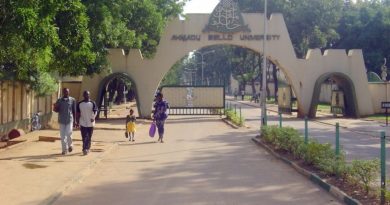Education as a tool for social relevance
By Titilope Adebayo
Education means different things to different people. To some, it is the process of going to school and getting a degree at the end of a stipulated number of years, while for others, it is the total number of experiences gathered by an individual, which has an effect on that individual’s behaviour.
These understandings of what education encompasses can be realised through these three aspects; formal education, semi-formal education, and informal education.

Whatever our understanding of education is, one thing is constant; education serves the purpose of enlightenment, which is evident in the behaviour of the educated against that of an illiterate, and consequently affecting the perception of that individual by the rest of the society.
Every society is fraught with its own challenges although these challenges differ from one society to another. Each society first relies heavily on the enlightened people in its geographical space to navigate successfully through its challenges, before seeking solutions from other places.
Let’s look at it this way, if a society has challenges in the area of security, it relies on the advice of its security experts to solve that problem. Hence, a society’s claim to solutions is mostly inwards; in its own enlightened members. By implication, the success of a society is built on the strength of the number of its enlightened members.
To undermine the value of education, some will often say that most successful people are not educated. They would go on to give names such as Mark Zuckerberg, Bill Gates, and Steve Jobs among others, as successful people who dropped out of school. And so, there’s really no need to get an education to be successful.
What these people do not say is that even if the success of those mentioned earlier was not built on their experience in the four walls of a school, were they stark illiterates to pull off such level of global success? Your answer is right.
ALSO READ: Improving university education in Nigeria
If indeed, the saying that no society can exist without challenges is true, then this poses quite a number of opportunities for each and every one of us to become solution providers to the prevailing issues in our immediate environment.
For most people, it is believed that academics are the only ones that can be relevant through education, by going on to become professors in ivory towers. This perception is to a large extent erroneous, it is not true.
Most Nigerians have just decided to leave the responsibilities of the society to those at the top, forgetting that even the family, which is the smallest unit of a society can influence things for the better.
And oh, you might even be thinking, so what is the usefulness of all the education I’ve got? With the unemployment level which has driven me to start a canteen in spite of being a graduate. Well, here is some good news! There is a lot you can do with your education as a cook, as a cobbler, as a tailor, and as a hairdresser.
Trust me, you’ll be marked differently from others. All you need to do is project your education on whatever you’re doing now, by taking a critical look at issues in the society and see how you can provide solutions to them through your service, while leveraging your education and you’ll be amazed at how relevant you will become in the society.
Titilope Adebayo writes from the University of Ibadan.
For Advert Placement, Sponsorship, support, Article submission, suggestion, etc, Contact us: info@theabusites.com, +2349015751816 (WhatsApp)








